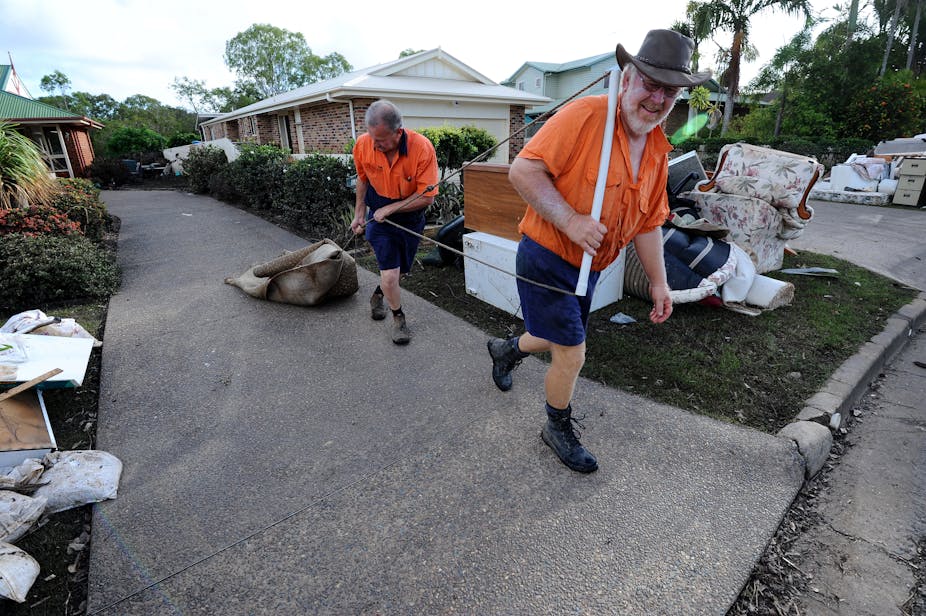The responsibility of caring for those most vulnerable in society often falls to community service groups. When extreme events such as bushfires, floods, heatwaves and storms hit, many rely on local volunteers. New research shows community groups themselves are struggling to deal with climate change. But, without them, can Australia adapt to a less-predictable future?
According to the World Health Organisation, more than 150,000 people die annually due to the effects of climate change. Many Australians are already experiencing the physical impacts of climate change on human health: heat exhaustion and heat stress, exacerbated chronic illnesses and even death.
These physical, or “primary”, impacts of climate change on health can lead to increasingly well understood secondary impacts. These include the spread of insect-borne diseases, mental health problems caused by living through extreme weather, increased psychological stress about the future due to climate change, or the threat to economic, social and environmental factors we all need for healthy lives.
But there is a third way Australians will experience the ill effects of climate change.
Community service organisations deliver vital services to people who really need support. There are organisations working with disabled persons, supporting families in need, providing support to children and young adults with special needs, and very common community services such as Meals on Wheels.
A recent study by RMIT and Monash researchers shows that many government-funded agencies providing vital services to the socially or economically vulnerable will likely struggle during acute climatic events. Most of them are ill-prepared for climate change.
Why is this happening? Many community service organisations rely on volunteer services from elderly people. These people are more prone to be affected by extreme weather events such as heatwaves and cold spells. They may be unable to volunteer when the weather turns bad or an extreme event occurs, and services can fall apart without volunteers.
The breakdown of critical infrastructure is another significant problem. When the power goes out or buildings are flooded, services can’t be provided. There are flow-on effects, too. In difficult circumstances organisations miss deadlines for mandatory reporting on their service provision, which means they can miss out on funding.
These findings corroborate a recent Australian Council of Social Services (ACOSS) study. Researchers reported that one week after an extreme event, 50% of community service organisations are still out of operation. One quarter might never provide services again.
Climatic events and trends disrupt or break down the very support mechanisms intended to help people cope with day-to-day difficulties, including extreme weather events. It’s a tertiary effect of climate change.
Australia can expect more frequent bushfires, floods, heatwaves and other types of extreme weather events. It is scary to ponder what may happen to those who rely on community services day-to-day.
The VCCCAR funded project Implementing adaptation tools to increase the capacity of the community and natural resource management sectors has investigated how government-funded agencies are currently affected by climate-related events and how they could best be supported to adapt.
Initial findings of the study suggest community service organisations need help to:
- promote safe and well-adapted housing
- make adaptation part of their strategic planning
- move on from responding to emergencies, to preparing for and adapting to climate change
- get practical guidance on climate change adaptation
- foster champions who can lead climate change adaptation within an organisation or across several agencies
- engage with clients and the broader community on climate change adaptation and strengthening existing community networks.
Should we expect such support from an incoming government? The Coalition has announced their support of the recently “un-funded” National Climate Change Adaptation Research Facility (NCCARF), pledging renewed funding of $9 million. NCCARF was born five years ago with bipartisan support from Federal political parties. The question remains, will the scales balance once again on what should clearly be a bipartisan issue?
If climate change adaptation is not made a priority, people and communities are likely to suffer come the next extreme weather event. And that’s a question of when, not if.

